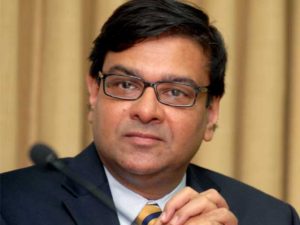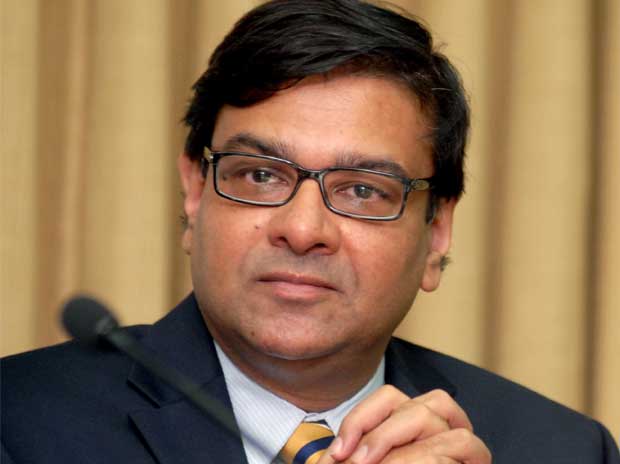By Aparajita Gupta
New Delhi– Has the Reserve Bank of India (RBI) under its new governor, Urjit Patel, surrendered its hard-fought autonomy? Many experts feel so, particularly after the manner in which Prime Minister Narendra Modi’s government has handled the demonetisation drive.
Former Prime Minister Manmohan Singh, also a former governor of the RBI and a finance minister, lamented in Parliament recently that constant modifications in the country’s banking system following demonetisation was not good for the country or the RBI.
“That reflects very poorly on the Prime Minister’s office, on the Finance Minister’s office and on the Reserve Bank of India,” he told the Rajya Sabha last month. “I’m very sorry the Reserve Bank of India has been exposed to this sort of criticism, which I think is fully justified.”

What is unclear in this whole exercise is how much say the country’s central bank — the apex monetary policy authority, established on April 1, 1935, following the enactment of the Reserve Bank of India Act, 1934 — had in the policy decision.
“The government said the RBI has recommended the demonetisation. I do not know whether the government has forced the RBI to ask or the RBI took the call on its own,” RBI’s former Deputy Governor K.C. Chakrabarty told IANS over phone from London.
“I’ll not be able to say (on RBI’s views being valued) unless the minutes of the board meet is shown,” he added, alluding to some interference by the government, since RBI’s position has always been against demonetisation.
“That was the consistent view of the Reserve Bank in the past,” Chakrabarty said.
In a reply to Bloomberg, on a right-to-information query, the apex bank said that the decision to withdraw the legal tender character of the Rs 1,000 and Rs 500 notes was taken by the RBI board at 5.30 p.m. on November 8 — less than three hours before Modi announced it to the country.
Overnight, Rs 15.44 lakh crore or 86 per cent of the currency in circulation was declared illegal. Norms were announced by the Prime Minister on how people could deal with such currency in their possession — which were subsequently changed on an almost daily basis.
Regarding autonomy, Chakrabarty said: “You must understand the autonomy that the RBI was getting from the government was because the government was to give the autonomy to the institution. If the government does not want to give anybody autonomy, the RBI cannot do anything.”
West Bengal Finance Minister Amit Mitra was more direct.
“Most eminent people in India have been RBI governors, including the present governor (Urjit Patel). He is a good economist. Now the same autonomous institution has lost its teeth. It has been issuing notices and withdrawing notices as per government’s instructions,” Mitra told IANS.
“What is very dangerous regarding demonetisation has gone unnoticed. The deeper issue is that fundamental institutions of India of historic nature are being undermined and emasculated. Therefore, the faith in them by the people is under question today,” he added.
The money that was declared illegal is yet to be replaced in any substantial measure — at last count, the RBI said Rs 5.93 lakh crore of new Rs 2,000 and Rs 500 have been issued. Since November 10, most ATMs across the country have remained shut and those which do open their shutters run dry of cash very quickly. Bank cash counters have the same woes, despite restrictions on the amount that individuals or companies can withdraw.
Many bankers too seemed to have lost faith on the towering apex institution.
“Yes, the RBI seems to have lost its autonomy in the issue of demonetisation which has been totally mismanaged,” a chief executive of a bank told IANS, declining to be named.
“The RBI should have advised the government on the ground reality about withdrawing 86 per cent of the currency notes in circulation and the logistical issues,” he added, suggesting that the central bank should have stuck to its ground.
In fact, Duvvuri Subbarao, former RBI Governor and Finance Secretary, has been rather candid about his relationship with the government and the finance minister (P. Chidambaram at that time) when he was at the helm at Mint Street, the headquarters of the RBI in Mumbai.
“Both have the same objective of growth, but RBI looks at long-term growth and the government looks at short term growth that results in different priorities for both. There is no way out,” Subbarao told IANS.
“It all depends on the chemistry between the finance minister and the governor,” he said.
But experts hope the question of autonomy could come under less pressure, now that a Monetary Policy Committee (MPC) has been named and has started functioning — with three representatives each from the government and the RBI, and the veto power with the Governor.
“I support formation of MPC, though it will curtail the decision-making powers of the RBI Governor,” said Subbarao. “The Governor will discuss and listen to all stakeholders in the committee, so he will not be solely responsible for the decision on interest rates.”
But some domain experts like M.R. Sivaraman, former Union Revenue Secretary and former Executive Director at the International Monetary Fund, don’t think demonetisation exercise, at least, reflects loss of the RBI’s autonomy. On the contrary, they feel it is RBI that should have handled the situation better.
“Demonetisation will curb black money, eliminate fake currency and bring out unaccounted cash stashed away into the banking system,” said former Infosys board member T.V. Mohandas Pai, dismissing suggestions about loss of independence. (IANS)





